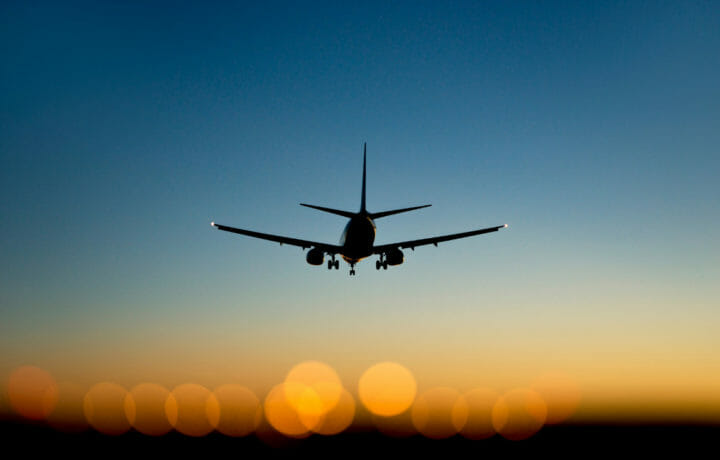Traveling to other countries as a security clearance applicant or current holder is something you should not take lightly. The nature of your trip or what location you are visiting are very important as you are filling out the SF-86 or self-reporting foreign travel to your Facility Security Officer (FSO).
Another big factor to consider is if you are following local laws and U.S. federal laws – if there is ever something that you will need to divulge for a polygraph, it’s best to consider if it is worth it to partake in things that may come to bite you and your clearance.
DRUG TOURISM
Amsterdam is a household name that has become synonymous with cannabis tourism for decades. But after a recent statement by Amsterdam mayor Femke Halsema, Netherlands’ capital is pulling away from this multibillion-dollar industry, including a recent ban on smoking cannabis in public spaces. Will other countries seize this opportunity as a marijuana destination for foreign travelers? Security clearance holders and applicants should beware of drug tourism as other countries look to take the torch from Amsterdam.
Countries like Thailand, South Africa, Uruguay, Jamaica, Malta, Mexico, and Canada are all slowly opening up to marijuana tourism, which could attract U.S. tourists. Security clearance holders should continue to abide by the oath they took when they entered the national security workforce, and should self-report any foreign travel to their FSO.
Legal Concerns for Some FOREIGN TRips
Along with drugs, there are many things to keep in mind when you plan foreign travel. One Foreign Service applicant on the ClearanceJobsBlog paints this exact picture:
I applied to Foreign Service consular position and received a conditional job offer around October 2017 and began the process for submitting SF-86, medical and security clearance. I finished submitting all my information Dec 2017. I did not hear back until Sept 2019 when a different investigator was assigned to my case to gather more information on a trip I took to Cuba in July 2017.
I wasn’t given much context on the information they were looking for, so I did my best to present evidence of where I stayed, why I visited, contacts who were also on the trip etc. It wasn’t until the end of that meeting that the investigator shared that they wanted data on whether the trip was legal or not and whether the trip fell into one of the 12 general licenses for visit to Cuba.
Details of the trip:
Originally our group wanted to go for philanthropic reasons and take medical supplies and goods to Cuban people, but we were not able to secure a non-profit to work closely with, so we rearranged the trip around the educational general license. We still took items we could distribute to Cuban people we saw in need such as: sanitary napkins, over the counter medicines like aspirin, toys, and clothes. I mentioned this on the SF-86. When it came up in the interviews, I also mentioned the educational and cultural exchanges that took place as part of the educational general license.I just received a letter that the SRP found the trip to be “Criminal, dishonest, or notoriously disgraceful conduct.” and have included a part of the letter below:
“It remains, however, that your travel to Cuba in July 2017 failed to provide ‘full-time schedule of educational exchange activities that will result in meaningful interaction between the traveler and individuals in Cuba and other requirements for the general license for travel to Cuba and was, in fact, in violation of U.S. federal regulations governing travel to Cuba in force at the time of that travel.”
There were very specific examples given of evidence from my interview that led them to believe that the trip was “primarily for the purpose of tourism” such as:
- Citing that we stayed in Airbnbs (which our group did not want to be in violation of laws by staying at a hotel owned by the Cuban government and thus being interpreted as supporting the Cuban government)
- “Evidenced by visits to Javira waterfall, the Casa de La Musica Cultural Center, Plaza Mayor, Coral Beach, and a beach bar in Veradero, among other tourist sites. In 2017, U.S. federal regulations prohibited any federal official from approving travel-related transactions either by a general license or on a case-by-case basis by a specific license for travel to, from, or within Cuba for tourist activities.”
- I was honest that I tried a local beer in Cuba (but the investigator mentioned that I tried a mojito as well which I think he was confusing with a trip to Puerto Rico). Not sure if that is worth mentioning if I decide to appeal.
But the rest of the letter references all the support I gave that demonstrated it was a cultural exchange trip under the educational general license.
In different parts of the letter it did mention that I did not provide evidence of a “full-time schedule of activities intended to enhance contact with the Cuban people, support civil society in Cuba, or promote the Cuban people’s independence from Cuban authorities,” and each traveler was required to have a “full-time schedule of educational exchange activities that will result in meaningful interaction between the traveler and individuals in Cuba.” Travelers to Cuba for the purposes of “Educational Activities” were required to retain records sufficient to demonstrate that each individual traveler had engaged in a full-time schedule of activities that satisfied the requirements of the general license. You provided no such records, and the description of your time in Cuba does not indicate that you met the requirements for a general license for travel for “Educational Activities.”
Whether you are taking a trip for luxury, service, or something else, it’s best to keep you clearance (or potential clearance) in mind if you want to maintain it.




